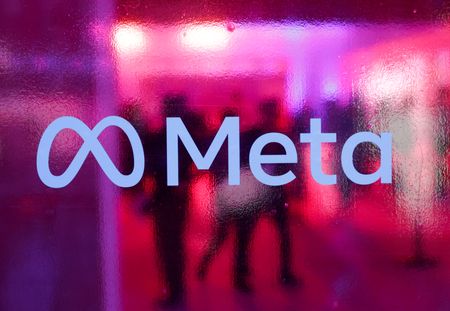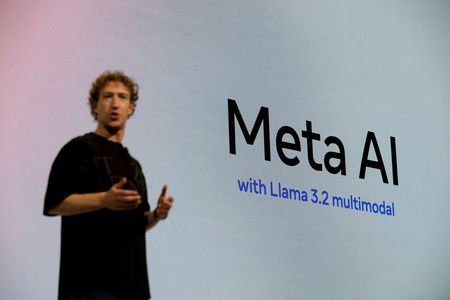By Foo Yun Chee
BRUSSELS (Reuters) -Meta Platforms will end political, election and social issue advertising on its platform in the EU in early October, blaming legal uncertainties due to new EU rules on political advertising, the U.S. social media company said on Friday.
Meta’s announcement echoed Alphabet unit Google’s decision announced last November, underscoring Big Tech’s pushback against EU rules aimed at reining in their power and making sure that they are more accountable and transparent.
The European Union legislation, called the Transparency and Targeting of Political Advertising regulation and which will apply from October 10, was triggered by concerns about disinformation and foreign interference in elections across the 27-country bloc.
The law requires Big Tech companies to clearly label political advertising on their platforms, who paid for it and how much, as well as which elections are being targeted, or risk fines up to 6% of their annual turnover.
“From early October 2025, we will no longer allow political, electoral and social issue ads on our platforms in the EU,” Meta said in a blog post.
“This is a difficult decision – one we’ve taken in response to the EU’s incoming Transparency and Targeting of Political Advertising (TTPA) regulation, which introduces significant operational challenges and legal uncertainties,” it said.
Meta said the EU rules would ultimately hurt Europeans.
“We believe that personalised ads are critical to a wide range of advertisers, including those engaged on campaigns to inform voters about important social issues that shape public discourse,” it said.
“Regulations, like the TTPA, significantly undermine our ability to offer these services, not only impacting effectiveness of advertisers’ outreach but also the ability of voters to access comprehensive information.”
Meta’s Facebook and Instagram are currently being investigated by the European Commission over their suspected failure to tackle disinformation and deceptive advertising in the run-up to the 2024 European Parliament elections.
The EU probe is under the Digital Services Act, which requires Big Tech to do more to counter illegal and harmful content on their platforms or risk fines of as much as 6% of their global annual turnover.
ByteDance’s TikTok is also in the EU crosshairs over its suspected failure to tackle election interference, notably in the Romanian presidential vote last November.
(Reporting by Foo Yun Chee. Editing by Charlotte Van Campenhout. Editing by Mark Potter)










